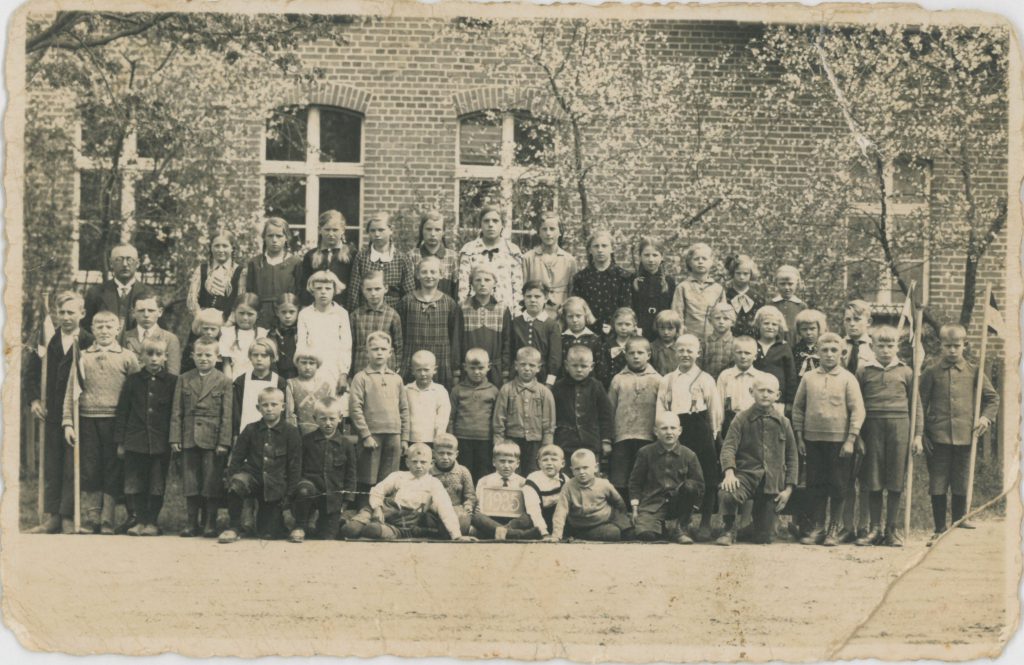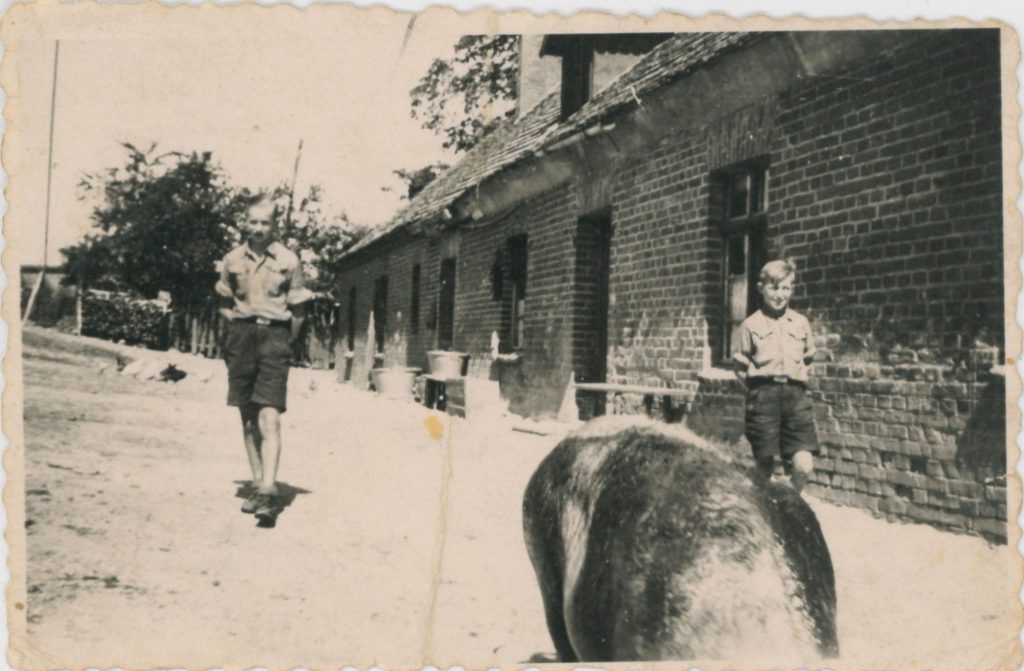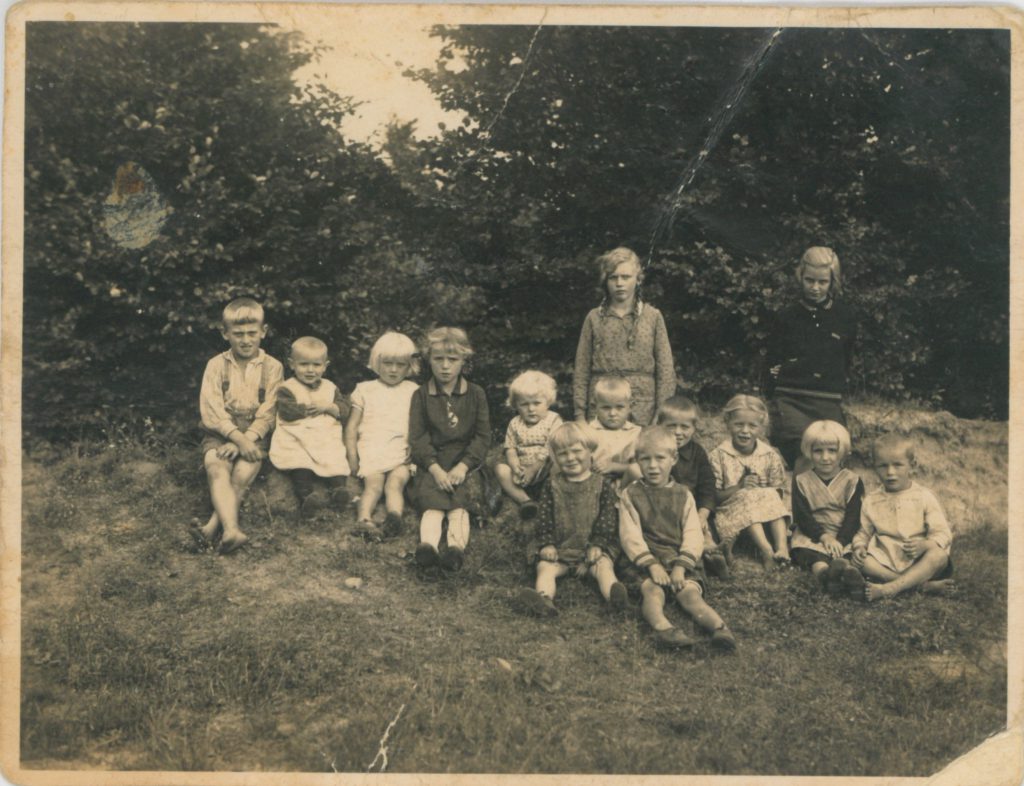Life at Elisenhof
At the beginning of the twentieth century, life at Elisenhof was characterized by agriculture – work in the fields and in the stables.
Gottlieb Boettcher bougt the estate in 1904 and constantly expanded it. Besides a cowshed with about sixty dairy cows, thirty cattle and a bull, there were pigs, sheep, geese and other poultry. Around the farm were the fields and meadows that were cultivated. The management of the farm is the responsibility of the landowner and a manager.
In 1944, twelve other families lived and worked at Elisenhof, in addition to the Boettcher family. The men were assigned special tasks. There was a man responsible for the cowshed and the cattle and dairy farming. There was also a blacksmith in the smithy to carry out repairs. The other workers were responsible for the use of the horses on the fields. Mechanization came to the estate. Besides a wood-gas tractor, the manual work on the farm was supported by a diesel tractor, potato digger, grass mower, threshing and drilling machine, fertilizer spreader and other equipment.
During the war years, many of the men of Elisenhof fought as soldiers. Forced laborers replaced them on the farm. They were either civilian prisoners or prisoners of war, who came from Russia, Poland and France.
The women took care of the children, the household, the garden and their own livestock. Most families had many children and were self-sufficient, as well as working on the estate. They each had, for example, their own cow and geese and also a small piece of land for cultivation. The families lived rent free and were given the following rations: grain, potatoes, milk, and briquettes as fuel. For each child, a family received additional allownces of grain and milk. The hourly wage was 10.5 Pfennig.
The children attended the nearby school. Children from the surrounding estates were also pupils at the school. Pupils from the first to the eighth class were in one classroom by a single teacher. The grammar school in Preußisch Friedland, a short distance away, was attended by very few children.

The school-age children had a variety of tasks to do besides attending school. Among other things, they looked after the pigs or geese, took care of their younger siblings, fetched water from the pump or helped with the potato harvest in autumn. For this task, the autumn holidays were extended – the so-called “potato holidays”.


On Sundays there was the “children’s hour”. All the children of the estate came together. They played, sang, read and learned poems. On special occasions the families celebrated together. There was the so-called “Federnball”, when the families came together, plucked the geese and processed the feathers into bedding. However, there was not only work, but also celebration. At the harvest festival, the people of Elisenhof and other farm communities paraded through Preußisch Friedland in a large procession. And on Christmas Eve there was a special surprise. In the morning, the Boettcher family invited the families to a communal celebration in the manor house.
